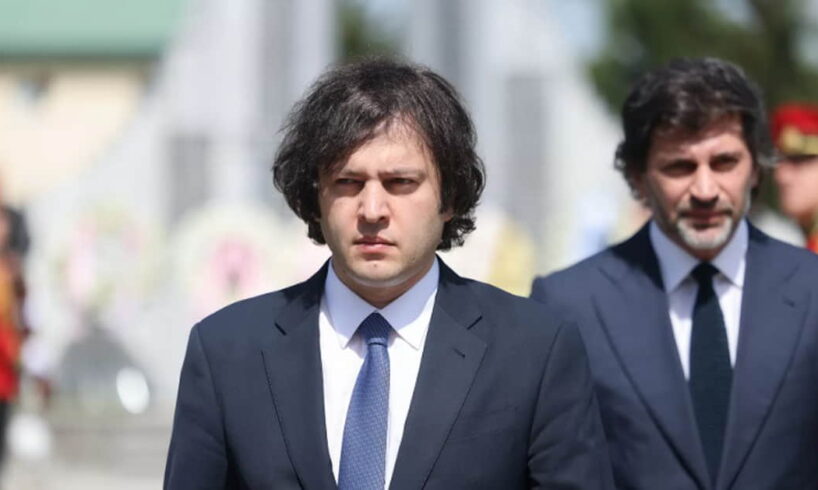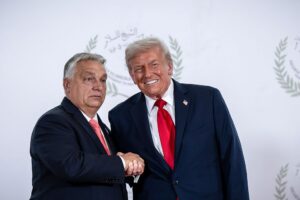
Events in recent weeks in Georgia have shown that the ruling party Georgian Dream has failed to fully take control of the country and feels extremely insecure.
It has come to the point that the Georgian authorities have already announced alleged opposition plans to seize power by force on the day of the local self-government elections, 4 October, allegedly with the support of Ukrainian special services.
Read more about why autumn poses a threat to the Georgian regime and how the European Union can help Georgia’s resistance in the article by Amiran Khevtsuriani of the Georgian-Ukrainian Center, and Yurii Panchenko, European Pravda’s editor: An attempted coup and explosives from Ukraine: what Georgian Dream is preparing the country for.
Local elections have become a real test for the Georgian opposition.
It is enough to recall that the decree on holding the elections was signed by Mikheil Kavelashvili, whom the opposition does not recognise as the legitimate president of Georgia.
That is why most of the opposition, including Mikheil Saakashvili’s party United National Movement, as well as the country’s fifth president Salome Zourabishvili, called to boycott these elections.
Only two opposition parties decided to take part, which should have guaranteed Georgian Dream an easy victory.
However, closer to election day, everything changed.
The head of the political council of the United National Movement, Levan Khabeishvili, together with civic activist and well-known opera singer Paata Burchuladze, announced a large rally for 4 October, which should become a Judgment Day for the ruling party.
“4 October is not just a rally. On 4 October, we are holding a national assembly, where many people from the regions and from Tbilisi will gather. There will be so many that Tbilisi’s streets may never have seen such numbers before. We are now ordering two million invitations. The invitation will at the same time be a mandate to vote at the assembly. Mandates will be distributed directly, or they can be collected at the entrance,” Burchuladze declared.
Within just a month and a half, Khabeishvili and Burchuladze successfully promoted their strategy, forcing the authorities to reveal their insecurity.
Georgian Dream quickly reacted and, as usual, immediately activated its “security instinct” in tandem with its “propaganda machine.”
First, they replaced the head of the State Security Service, Anri Okhanashvili, with the leader of the parliamentary majority, Mamuka Mdinaradze.
Already on 11 September, Mdinaradze’s agency arrested Levan Khabeishvili, as well as Murtaz Zodelava, who was with him at the time and had served as chief prosecutor under Saakashvili’s government.
Moreover, the regime stuck to its recent practice of going after former members of its own team.
Such arrests show that Georgian Dream has long since lost its unity.
This makes it possible to predict a potential split between the team of the current prime minister and the party’s founder, Bidzina Ivanishvili.
At the same time, the State Security Service of Georgia (SSG) has hinted at possible involvement of Ukrainian intelligence in what the Georgian authorities now openly call an attempted coup.
There is every reason to expect that by 4 October the political temperature in Georgia will reach its peak.
Most likely, as election day approaches, the number of provocations by the authorities will only grow, and 4 October has every chance of going down in history as yet another example of Georgian security forces brutally suppressing peaceful protests.
And this is a signal for the West.
The European Union must finally make a firm decision and revoke Georgia’s visa-free regime – something the Georgian authorities deeply fear.
If you notice an error, select the required text and press Ctrl + Enter to report it to the editors.





